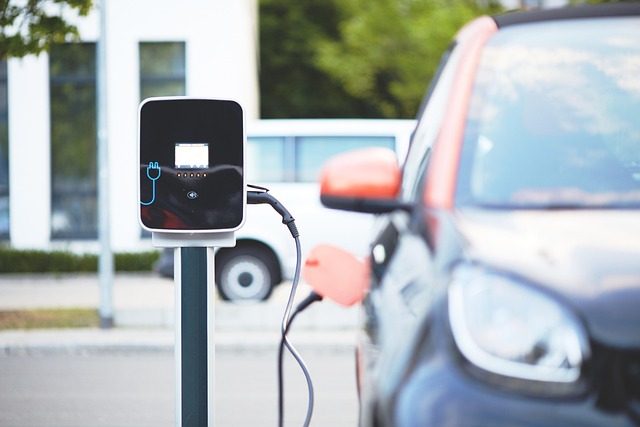Driverless car insurance adapts to smart car tech advancements, focusing on unique risks like sensor failures and software glitches. Key coverages include liability for automated driving incidents and emerging pay-as-you-drive policies. Select Smart Car Tech influences quotes, with features like collision avoidance potentially lowering premiums while complex immobilizers may raise them. Driving history, coverage type, and deductible also impact pricing. This tech streamlines claims resolution through real-time tracking and data analytics, reducing costs and fostering safer driving behaviors.
“Unraveling the complexities of driverless car insurance is essential as autonomous vehicles revolutionize roads. This article guides you through the intricacies of understanding and acquiring coverage for these cutting-edge machines. We explore how advanced tech, particularly Select Smart Car Tech, significantly impacts premium costs.
Learn about the factors influencing quote dynamics and discover best practices for navigating claims in the event of accidents involving self-driving vehicles. Get ready to demystify driverless car insurance with our comprehensive insights.”
- Understanding Driverless Car Insurance: Basics & Coverage
- How Select Smart Car Tech Impacts Premium Costs
- Comparing Quotes: Factors Influencing Pricing Dynamics
- Navigating Claims Process in Autonomous Vehicle Accidents
Understanding Driverless Car Insurance: Basics & Coverage

Understanding Driverless Car Insurance: Basics & Coverage
Driverless car insurance is a specialized policy designed to cater to the unique risks and needs of autonomous vehicles. As these cars navigate through increasingly smart city integrations, their insurance requirements become more nuanced. Unlike traditional policies, driverless car insurance focuses on covering damages and liabilities specific to automated driving, such as sensor failures or software glitches. It also considers personalized driver profiles, ensuring that each vehicle’s individual characteristics are accounted for in risk assessment.
Key coverage areas include liability for property damage and bodily injury caused by the autonomous system, as well as comprehensive and collision insurance tailored to low-impact driving techniques. Pay-as-you-drive policies are another emerging trend, where premiums are based on actual driving behavior rather than mileage or time spent on the road, encouraging safe and efficient driving practices. This evolution in insurance reflects the advancement of smart car tech and the shifting landscape of autonomous mobility.
How Select Smart Car Tech Impacts Premium Costs

The choice of smart car technology plays a significant role in determining the cost of driverless car insurance quotes. As vehicles become increasingly equipped with advanced features, insurers are adjusting their pricing models to reflect these technological advancements. Select Smart Car Tech can significantly impact premium costs, both positively and negatively. On one hand, incorporating innovative systems like collision avoidance systems and real-time traffic updates demonstrates a commitment to safety and efficiency, potentially leading to lower insurance rates. These technologies actively reduce the risk of accidents, minimizing claims and thus lowering overall expenses for insurers.
Conversely, certain smart car features might increase premium costs. For instance, advanced immobilizer systems designed to prevent theft can add complexity to the vehicle’s electronics, making them more prone to malfunctions or cyberattacks. Insurers may view these as additional risks, leading to slightly higher insurance quotes to cover potential repairs or security breaches. When considering driverless cars, it’s crucial to balance the benefits of safety and convenience with the potential financial implications on insurance premiums, especially when dealing with commercial vehicle optimization strategies that incorporate cutting-edge technology.
Comparing Quotes: Factors Influencing Pricing Dynamics

When comparing driverless car insurance quotes, several factors come into play that influence pricing dynamics. It’s essential to understand that each insurer considers unique variables when setting rates for autonomous vehicles. Key among these are the vehicle’s safety features, including its advanced driving assistance systems (ADAS), such as traffic jam assist and machine learning applications designed to predict and prevent accidents. The level of automation and the specific tech chosen by the manufacturer can significantly impact premiums. For instance, vehicles with higher levels of self-driving capabilities may be seen as safer bets, leading to more competitive rates.
Additionally, driving history plays a crucial role. Insurers will examine a driver’s past, including any tickets, accidents, or claims, to assess risk. Given that driverless cars promise reduced human error, drivers with clean records could potentially benefit from lower quotes. Furthermore, the type of coverage sought—comprehensive, collision, or liability—and the deductible chosen can also affect pricing. Commercial vehicle optimization is another angle insurers may consider, especially for fleet owners, as the technology’s adoption in commercial fleets can lead to more uniform risk profiles and potentially better rates over time.
Navigating Claims Process in Autonomous Vehicle Accidents

In the event of an accident involving a driverless car, navigating the claims process can seem daunting at first glance. However, with advanced Select Smart Car Tech, this process becomes more streamlined and efficient. These vehicles are equipped with sophisticated sensors and data analytics that record real-time performance tracking, enabling quick assessments and accurate determinations of fault. By leveraging dynamic speed limits and green car technologies, the insurance industry can facilitate faster claims resolution and potentially reduce costs associated with traditional accident investigations.
The claims process for autonomous vehicle accidents often involves less ambiguity due to the wealth of data available from these smart cars. For instance, low-impact driving techniques can be analyzed to determine if a collision was avoidable or if external factors played a significant role. This data-driven approach not only helps in reaching a quicker settlement but also promotes safer driving behaviors by providing insights into potential areas for improvement.
As we navigate an era of advanced automotive technology, understanding driverless car insurance is paramount. By comparing quotes and selecting the right smart car tech, drivers can ensure they’re adequately covered for these innovative vehicles. The claims process in autonomous vehicle accidents may differ, so being informed about potential scenarios is crucial. With knowledge of influencing factors, such as the tech’s capabilities and safety features, individuals can make informed decisions when it comes to driverless car insurance quotes.
